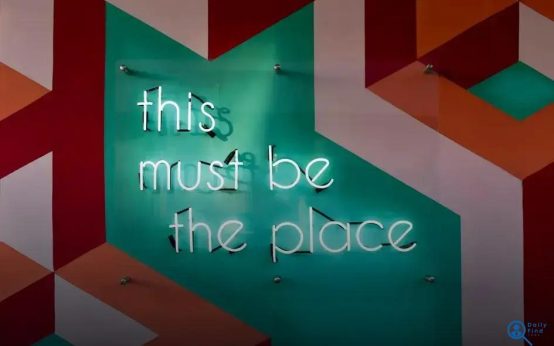Are you preparing for a critical job interview? Understanding how to nail a job interview can make all the difference in landing your dream position. By mastering specific strategies such as company research, anticipating common interview questions, and knowing how to present yourself, you significantly boost your chances of success. This post will explore essential tips to help you succeed, from preparation to post-interview best practices.
Researching the Company and Role
Before stepping into an interview, one effective strategy is thoroughly researching the company and role you are applying for. This involves understanding the company’s mission, values, and recent achievements. Begin by visiting their official website to get insights into their culture and history. Moreover, reviewing their recent press releases or news articles can provide valuable updates on their future projects.
In addition, explore their social media channels, as they’re often updated with the latest happenings within the company. This information not only shows your genuine interest but also prepares you for potential questions about why you want to work there.
Don’t forget about the job role itself. Scrutinize the job description and make a list of required skills and qualifications. Reflect on how your experience and abilities align with these requirements. Consider reaching out to current or former employees via LinkedIn. They can offer insider knowledge that’s invaluable.
Ultimately, the depth of your research can set you apart from other candidates. Employers are often impressed by candidates who have a robust understanding of the business and the position. Well-prepared individuals stand out by showing they’ve done more than just the basics.
Common Interview Questions and How to Tackle Them
During job interviews, you will likely encounter a variety of common interview questions. These questions are designed to assess your skills, experience, and fit for the role. Preparing for these questions in advance can give you a significant advantage.
Tell Me About Yourself
One of the most typical questions is, “Tell me about yourself.” This open-ended question is your chance to provide a concise overview of your professional background, skills, and what you can bring to the company. Keep it short, focusing on your most notable achievements and experiences relevant to the position.
What Are Your Strengths and Weaknesses?
When discussing your strengths, align them with the job requirements. For example, if organization is a key skill for the role, mention your organizational abilities. When talking about weaknesses, be honest but spin it positively by discussing how you’re working to improve.
Why Do You Want to Work Here?
Interviewers ask this to gauge your interest in their company. Your answer should reflect your knowledge about the company and its culture. Mention specific aspects that attract you, showing you’ve done your homework.
Describe a Challenging Situation and How You Handled It
This question tests your problem-solving skills and resilience. Use the STAR method (Situation, Task, Action, Result) to structure your response, highlighting a specific example where you successfully overcame a challenge.
Where Do You See Yourself in Five Years?
Here, interviewers want to understand your career aspirations and whether you plan to grow with the company. Focus on your professional development goals that align with what the company offers.
Keep rehearsing these answers, so you’re ready to handle them effectively during the interview. The more prepared you are, the more confident you’ll be!
Dressing and Preparing for Success
When it comes to an interview, the way you present yourself is crucial. Wearing the right attire can create a powerful first impression. Understand the company culture—whether it’s corporate or casual. Opt for a suit if the environment is formal. For a casual workplace, neat, professional clothing is key.
Focus on grooming: clean nails, styled hair, and polished shoes speak volumes. Pay attention to details like accessories. Keep jewelry minimal and makeup understated. This reflects a balanced demeanor.
Don’t forget the essentials: bring copies of your resume and any relevant documentation in a neat folder. Arriving prepared shows your professionalism and readiness for the opportunity.
Mentally prepare by practicing elevator pitches. This way you can articulate your skills confidently. Familiarize yourself with the route and traffic timings. Arriving 10 minutes early can ease anxiety and showcase your enthusiasm.
Post-Interview Follow-Up and Etiquette
After completing your job interview, the next step is crucial: the follow-up. This action displays your enthusiasm for the role and keeps your application fresh in the interviewer’s mind. Start by sending a thank-you email within 24 hours of your interview. Express gratitude for the opportunity to discuss the position and highlight key points from your conversation that impressed you.
In your email, keep the tone polite and professional. Mention any specific topics you discussed that ignited your interest or any skills you feel match the company’s needs. This shows you were engaged during the interview and are serious about the position.
If you don’t receive a response after your thank-you note, it’s appropriate to follow up after a week. Ask politely if there is any further information you can provide or inquire about the next steps in the hiring process. Remember to keep this follow-up short and to the point.
Aside from email follow-ups, consider sending a handwritten note. Though less common, handwritten notes can make you stand out. Ensure it reflects the same professionalism as your email.
Practicing proper post-interview etiquette not only demonstrates your interest but also leaves a lasting positive impression. Avoid excessive follow-ups as they might come off as pushy. Be patient; hiring decisions can take time, and the company will appreciate y our understanding and respect for their process.


 Work-Life Balance: Why It Matters More Than Ever Today
Work-Life Balance: Why It Matters More Than Ever Today  How to Deal With a Toxic Work Environment Easily
How to Deal With a Toxic Work Environment Easily  The Best Certifications to Boost Your Resume: Top Picks Revealed
The Best Certifications to Boost Your Resume: Top Picks Revealed